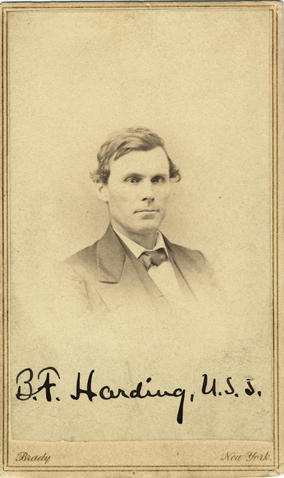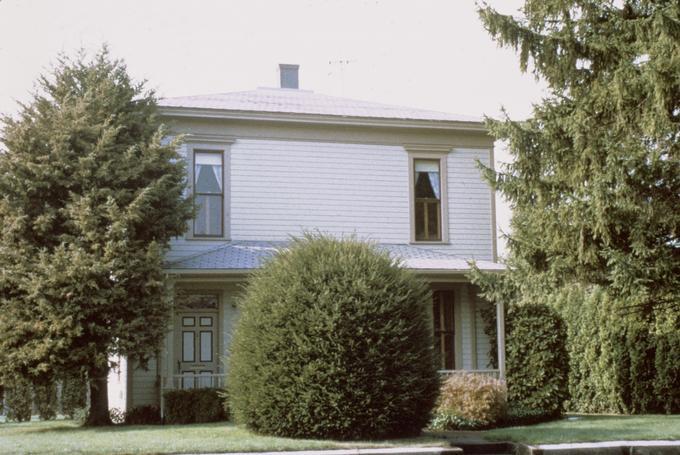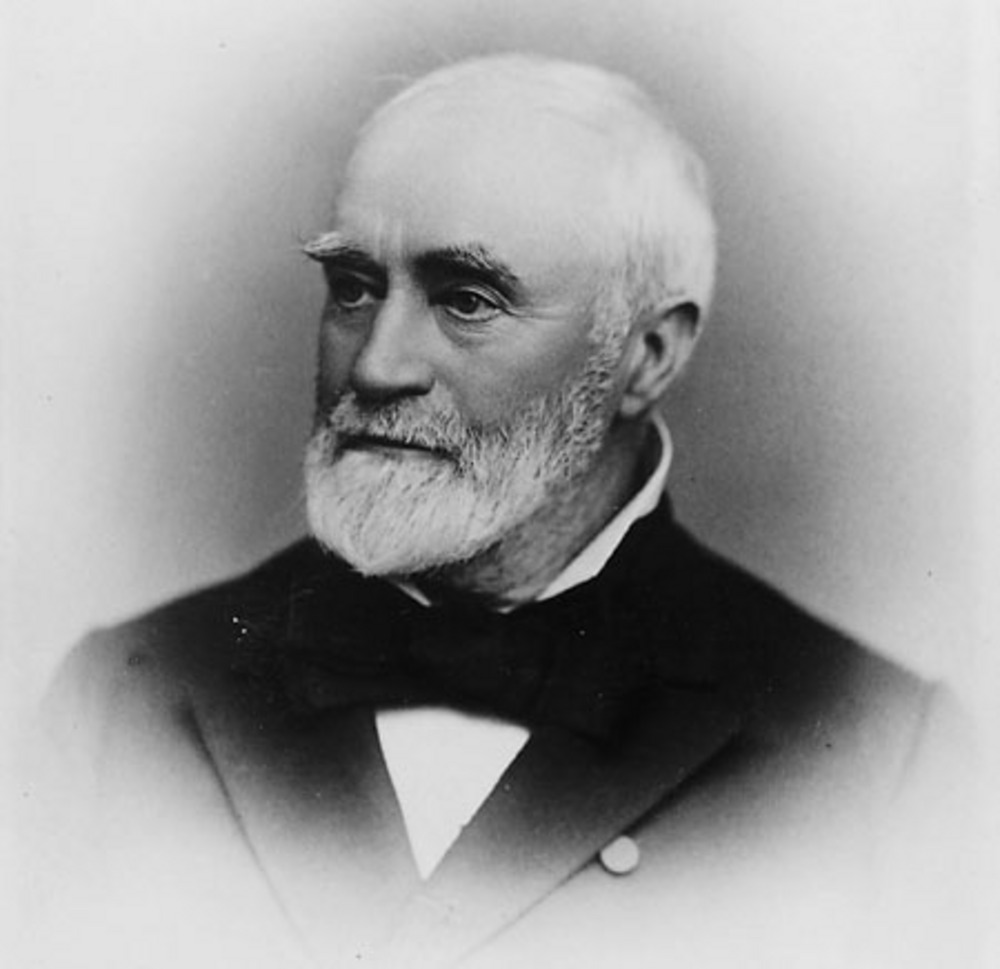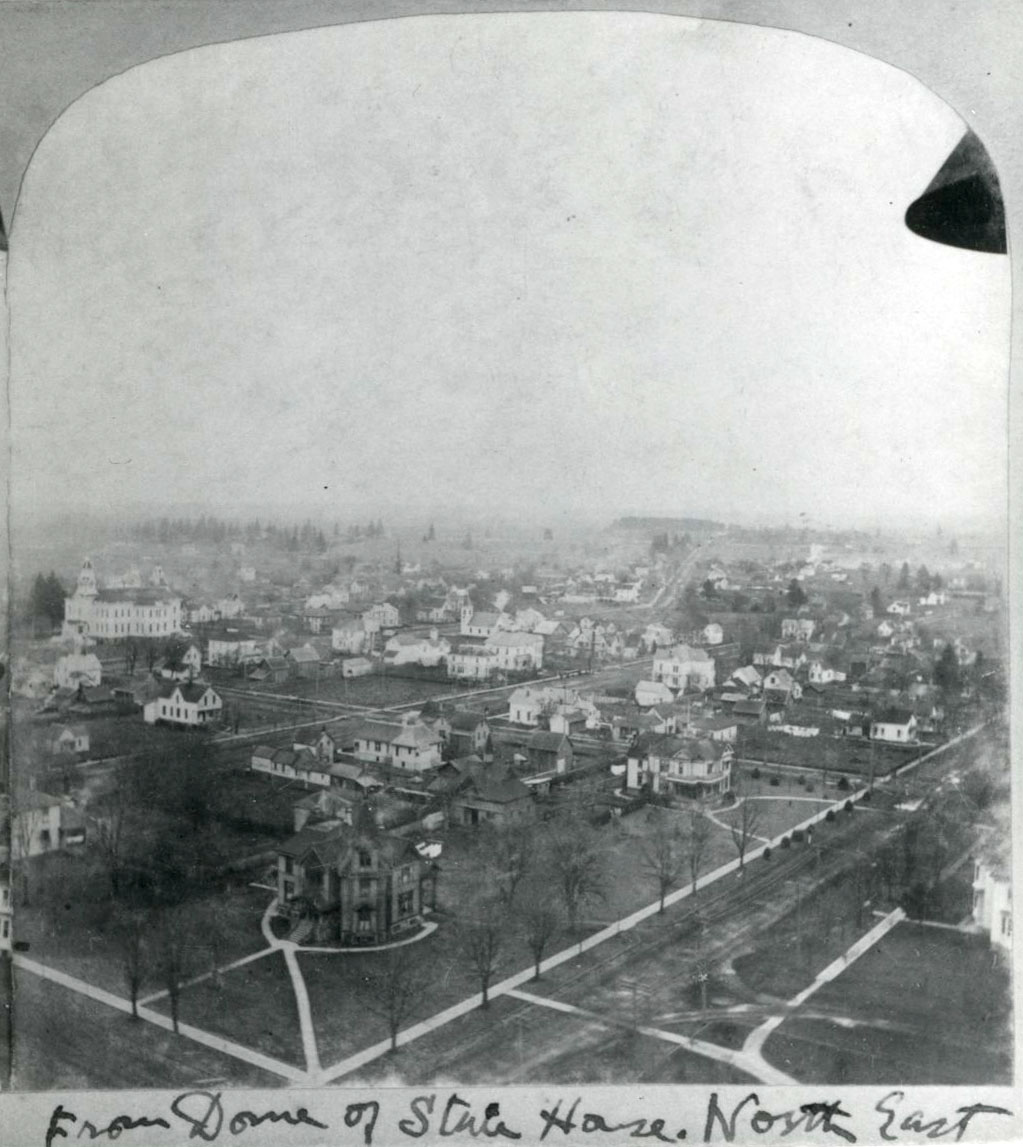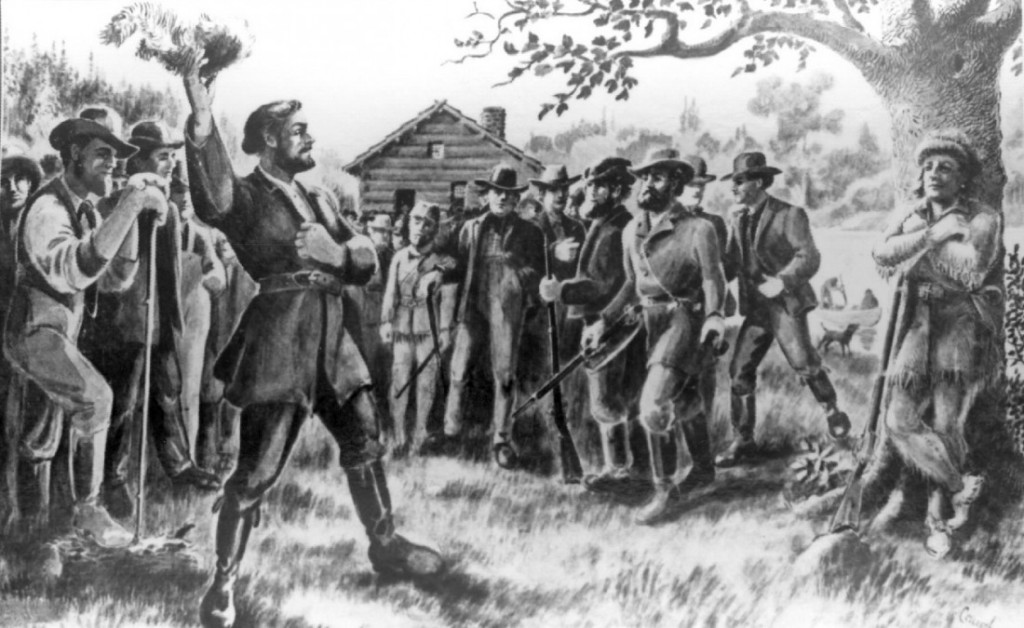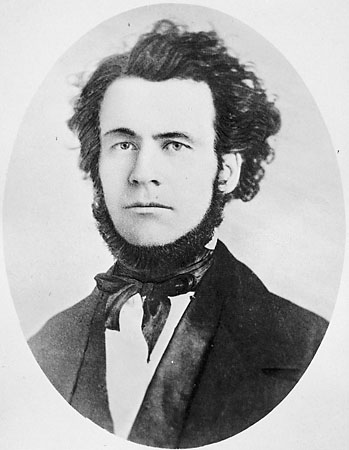Benjamin Franklin Harding helped lead Oregon through the state’s formative and tumultuous years during the mid-nineteenth century as secretary of the Oregon Territory and speaker of the House of the Territorial Legislature. He rose to national distinction as a U.S. senator for Oregon during the American Civil War.
Harding was born in Tunkhannock, Pennsylvania, on January 4, 1823, one of six children born to Elisha and Amy Jenkins Harding. He attended public schools and in 1847, at the age of twenty-four, passed the bar exam in Pennsylvania, which allowed him to practice law anywhere in the country. He moved to Joliet, Illinois, where he opened a law office, and then immigrated to California. In late 1849, he moved to Oregon and settled with his brother, Elisha Jenkins “E. J.” Harding, a farmer who eventually owned over two thousand acres in the Willamette Valley near Salem.
Benjamin Harding opened a law office, first in Oregon City and then in Salem. In 1851, he married Eliza Cox, whose father, Thomas Cox, was one of the first merchants in Salem. The couple would have four children, all of whom died before they reached twenty years old.
A Democrat, Harding tied himself to the powerful Salem Clique, first by becoming a close friend of Asahel Bush and second by joining Lafayette Grover in a law practice in July 1852. He represented Marion County in the Oregon Territorial Legislature during a special session and served as clerk of the legislature in 1851-1852. He ran and won election to the legislature for a second time in 1852 and also for a second time was elected Speaker of the House. When Democrat Franklin Pierce became President in 1853, he appointed Harding U.S. district attorney for Oregon. One year later, the president appointed him Secretary of the Oregon Territory, an office he held until Oregon statehood in 1859. In 1856, he served for several months as Acting Governor, while Governor George L. Curry visited Washington, D.C.
In 1860, Harding again represented Marion County but in the state legislature, and for a second time he was elected Speaker of the Oregon House. With the outbreak of the Civil War in 1861, Harding joined other politicians, Democrat and Republican, to support the Union and the war effort to end the southern rebellion. He was part of a group in January 1862 that called for a Union State Convention to support political candidates who favored an aggressive war policy.
Republican U.S. Senator from Oregon, Edward Baker, had voluntarily joined the Union Army at the beginning of the Civil War and was killed in October 1861, which required the state legislature to fill his vacant office. A politically divided senate elected Democrat B. F. Harding in September 1862. Harding told his political allies that he would only serve out the term and not run for reelection. In An Illustrated History of the State of Oregon, Rev. H. K. Hines described Harding on the eve of his election as a “quiet, unostentatious man, of solid but not showy talents....He was a man of excellent habits and general good repute that gave him the honorable distinction of replacing the lamented Baker.” During Harding’s tenure as senator, the primary focus of the U.S. Congress was Civil War legislation, and Harding served on the Joint Committee on the Conduct of the War. In the presidential election of 1864, he supported Unionist Party candidate George B. McClellan over Republican Abraham Lincoln.
Harding returned to Oregon in 1865 and took up his law practice and political activities. He joined with Asahel Bush in an unsuccessful effort to revitalize Oregon’s pre-civil War Democratic Party, but his support of the Unionist war effort made him untrustworthy for Democrats, and his support for President Andrew Johnson left him alienated from former Unionists.
Eliza Harding died in 1868, and he married F. W. Bush, known as Sally, the niece of Harding’s longtime political ally Asahel Bush. In 1871, his last remaining child, sixteen-year-old Malcolm was killed during a fox hunt. Two years later, Sally Bush died. In the 1890s, Harding moved to a farm in Cottage Grove to be near John Whiteaker, Oregon’s first governor. The two men had settled in the state at roughly the same time and had served together in the territorial legislature. Harding died on June 16, 1899. Upon his death, Oswald West remembered him as “a tall, strongly built man, possessing a pleasing personality, and blessed with temperate habits.” Harding was buried at Fir Grove Cemetery in Cottage Grove.
-
![]()
Benjamin F. Harding, c.1870.
Oregon Historical Society Research Library Cartes-de-visite Collection Org. Lot 500
-
![The house, on High St. SE, off Bush St. SE across from Bush's Pasture, was listed on the National Register in 1981.]()
Related Entries
-
![Asahel Bush (1824-1913)]()
Asahel Bush (1824-1913)
Asahel Bush was a key figure during Oregon's formative years, using the…
-
![City of Salem]()
City of Salem
Salem, the capital of Oregon, is located at a crossroads of trade and t…
-
![Provisional Government]()
Provisional Government
The Provisional Government, created in May-July 1843, was the first gov…
-
![Salem Clique]()
Salem Clique
Thomas Dryer, the first editor of the Oregonian, named the Salem Clique…
Related Historical Records
Map This on the Oregon History WayFinder
The Oregon History Wayfinder is an interactive map that identifies significant places, people, and events in Oregon history.
Further Reading
Hines, Harvey Kimball. An Illustrated History of the State of Oregon: Containing a History of Oregon from the Earliest Period of Its Discovery to the Present Time. Chicago, Ill.: Lewis Publishing Company, 1893.
"Joint Committee on the Conduct of the War.” United States Senate, May 22, 1865.
Tap, Bruce. “The Joint Committee on the Conduct of the War.” Virginia Center for Civil War Studies.
West, Oswald. “Reminiscences and Anecdotes: The Harding Brothers.” Oregon Historical Quarterly 52.4 (1951): 235-240.
Williams, George H. “Political History of Oregon from 1853 to 1865.” Oregon Historical Quarterly 2.1 (1901): 1-35.

